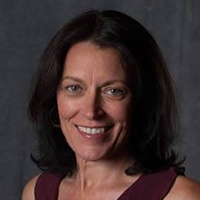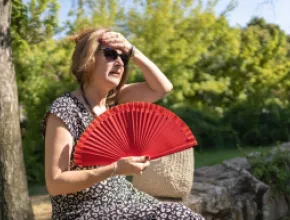As a young, highly dedicated meeting professional, the last thing Courtney Stanley thought she would worry about after a successful networking event was her job. But there she was in her hotel room, shaking as she opened a sexually inappropriate image that was just sent to her phone—by one of her company’s most important clients.
It was the same man she had just pushed away as he abruptly kissed her after following her from the elevator on her hotel floor.
“I felt this anxiety and shame that didn’t belong to me,” she said. “I was terrified that I had a company phone and someone might see the picture or that someone might think I had done something wrong.”
Stanley, then just 23 years old, yearned to speak to someone but didn’t have the resources to understand who to approach. She ended up in the hospital after a panic attack. The experience, and others since, has rattled her to the core.
[Related Content: Two Attorneys Share Tips on Legal Issues Surrounding Sexual Harassment]
October marks a year since actress Alyssa Milano reignited the #MeToo movement,* persuading millions of people to take a stand against sexual harassment.
While Stanley, speaker, writer and business consultant at CS Consulting, was inspired to start speaking on the topic well before October 2017, #MeToo further encouraged her, along with her good friend, Sarah Soliman Daudin, president and CEO of Soliman Productions, to move the conversation forward in the meetings and events industry, where they have both continuously experienced sexual harassment.
“There are a lot of times you feel like you need to bite your tongue if you are made to feel uncomfortable at an event,” Soliman Daudin said.
One such incident last year was when a person in a position of power who Soliman Daudin accepted as her mentor began putting his arm around her and resting his hand on her hip at events. He then started sending her sexually inappropriate questions via text.
After consulting with a friend in the industry, she discovered that other women had just come forward with similar stories, and the person was fired from his volunteer position on the board.
Advancing #MeToo in the Meetings Industry
Soliman Daudin and Stanley, moved by a long conversation about their personal experiences in the industry, ignited their own movement earlier this year, #MeetingsToo.
They presented their educational session, #MeetingsToo: How to Prevent and Manage Sexual Harassment at Events, at MPI World Education Congress (WEC) in Indianapolis in June and at MPI Northern California Chapter’s Professional Education Program in August and are bringing it to other events, as well as to organizations wishing to have the two work with their human resources teams on presentations and training.
The aim is to encourage others to speak out and give planners and organizations tools, ideas and a forum to fight and address sexual harassment and misconduct.
“We are on a mission to shed light on dark corners and present ideas and have real conversations about prevention, change and impact,” Stanley said.
Based on the reception so far, that mission is resonating with people. At MPI WEC, the well-attended session was ranked one of the top five of the entire conference based on attendee feedback, and at MPI NCC’s event, it was also packed with attendees.
“We have certainly started to see the results of how much positive change we can make together,” Soliman Daudin said. “Meeting professionals are not only craving the educational component of our discussion, but they appreciate how authentic, raw, human and vulnerable we are throughout.
“I think people are coming together and realizing that this is a challenge within our own industry because of things like flowing alcohol, travel and sometimes being on a ‘vacation mindset,’ so the industry is stepping up and taking it seriously,” she added.
Nova Browning Rutherford, a keynote speaker who was the emcee at the 2018 Global Meetings Industry Day (GMID) in Toronto, where Stanley spoke on the topic of sexual harassment, said in her experience with sexual harassment, creating opportunities for situations to escalate into misconduct, such as endless amounts of alcohol at open bars, is one of the biggest problems in the industry.
“Because of creeps in the past, I miss dinners and many networking events—I just skip it,” she said, adding that instead, she makes herself scarce after daytime activities and retreats to her hotel room to utilize it as her own wellness sanctuary and decompress. “I’ve actually made a behavior modification as a result of how prevalent sexual harassment is, but I shouldn’t have to adjust my behavior.”
Creating Positive Change at Meetings and Events
Browning Rutherford said after attending Stanley’s presentation, she was certain things are going to start changing in the industry.
“You could have heard a pin drop during her speech,” she said. “Each table had women and men nodding in agreement. I saw many lightbulbs going off and felt the shared experiences people have of talking about alcohol culture and meetings, and I thought, this is going to change things.”
Limiting alcohol at events in a creative way is a start, Browning Rutherford said, citing ideas such as “dry” networking events at a fun off-site, offering only beer and wine and a limited number of drink tickets, and adjusting the agenda so networking events happen during the day with no alcohol served.
She also said factoring in real down time at events is key.
“Travel requires decompression,” she said, adding that aside from suggesting attendees arrive at least three hours before the start of an event to settle in and relax, planners should adjust schedules to give attendees more breathing room.
“Don’t jam sessions and everything in so tight so people run to the bar in need of a drink at 5 p.m.," she added. "Not running people down by factoring in decompression time and ample breaks is a simple way to avoid something that could get ugly.”
[Related Content: 20 Travel Safety Tips for Women in the Age of #MeToo]
Browning Rutherford believes developing a code of conduct, which Soliman Daudin and Stanley suggest, is also key.
A meeting planner in Northern California who preferred to remain anonymous agreed.
“It could be as simple as a code of conduct and having your organizers or clients acknowledge this is the expectation,” she said. “As far as liability goes, it’s important, and beyond that, it’s disheartening to know that I have skipped events and I know people who have left the industry entirely because of the sexual harassment problem. So it also comes down to losing opportunities.”
As a planner for four years who had experienced sexual harassment prior to her current position, she added that it all starts with education and understanding the perspectives are different among various generations.
“It has to be an accountability and a real commitment to the standard,” she said. “You have these cash cows. There are people who seem to operate outside the rules. There are serial assaulters. They protect these people because maybe it’s going to upset the stock value or they don’t want to upset the apple cart, so it’s more important to protect them than do the right thing.”
Jennifer Stevens, a 20-year industry veteran who is senior event operations manager at GloboForce in Farmingham, Mass., immediately approached her organization about a sexual harassment code of conduct after the #MeetingsToo presentation.
“We already have a harassment policy internally,” Stevens said. “But with HR, I needed to also discuss the issue regarding clients. How are we as an organization going to address this when it’s a client or a prospect?”
After the session, Stevens also brought Hannah, her daughter, who is a meeting planner just getting started in the industry, back to the room and asked the two presenters to share their stories with her and offer tips.
“This has been going on forever in the industry,” she said. “I thought it was important for my daughter to get their perspective.”
Hannah Stevens, who studied event management and is now education and events coordinator at Dentsply Sirona in Boston, said she sees education at the university level as an important way to combat sexual harassment in the industry.
“It shocked me after speaking with [the presenters] that I am a recent grad and no professor has ever talked about sexual harassment,” she said. “Even fellow students were surprised. I think with more people majoring in tourism and hospitality, it’s important to address.”
Collaboration Is Key to Move the Conversation Forward
Meanwhile, Soliman Daudin and Stanley are pleased that their sessions have been attended by several men, who they said need to be part of the conversation and may also be victims of sexual misconduct.
“It starts as a collaborative effort from all genders to ensure that everyone feels safe whether it’s in their place of business or at an event,” Soliman Daudin said.
Zaman Ishaad, conference coordinator at the Academic Internship Council in Toronto and a recent graduate, was one of the men who attended.
“A number of things resonated with me, including the stories and how this is a tough conversation to have, but it needs to be addressed, especially among young professionals,” he said, adding that he would like to see sexual harassment discussed at universities in programs relating to hospitality management and meeting planning.
Ishaad said he has stepped up efforts to address sexual harassment and implement changes for his organization’s events.
“One of the most important things is communicating with all parties involved within the event to make sure they are aware if sexual harassment does happen and what they should do,” he said. “It’s something we communicate with our hotel staff, too, as well as audiovisual companies, restaurants, etc.”
More Sexual Harassment Education and Training Is Needed in Our Industry
Don Gurganus, chief master sergeant retired, United States Air Force (USAF), co-manager of Thumbprint Properties and certified advisor at Powur Solar, was invited to the MPI NCC event by a meeting planner he had just met. He attended the #MeetingsToo presentation because of his interest in the topic and his pride in the USAF’s proactive stance in preventing power-based violence in the workplace, sexual assault and sexual harassment.
“My experience of the evolution in USAF culture on this topic has been very positive and my experience at the MPI NCC conference is that [USAF personnel] are quite well trained comparatively speaking,” he said, adding that he was impressed by the ideas and action steps put forth in the #MeetingsToo presentation. “It’s all about awareness and setting that tone to be proactive.”
According to Gurganus, education and training are key components moving forward for the meetings industry, pointing to how far the USAF has come since the mid-2000s, when it began implementing initiatives such as awareness training, sexual assault response teams and policies protecting victims of sexual abuse, among others.
[Related Content: #MeetingsToo: A 10-Step Action Plan to Fight Harassment]
Tania Ferlin, corporate group sales manager at the Hyatt Regency Toronto, attended Stanley’s presentation at GMID 2018 in Toronto and agrees that training is an important step.
“Sexual harassment is not something that’s widely talked about in the industry, and what really opened my eyes was when the Ontario Restaurant, Hotel & Motel Association, with about 11,000 members, rolled out a sexual harassment training program,” she said. “Building awareness is very important.”
As the #MeToo movement blazes forward, Soliman Daudin and Stanley are optimistic #MeetingsToo will continue inspiring those in the industry to seize the moment.
“I’ve had enough. I’ve seen too much, I’ve heard too much, and I’ve experienced too much,” Stanley said. “We have a moment right now to make a difference for generations to come.”
*Editor's Note: The #MeToo movement was originally created by social activist Tarana Burke.







